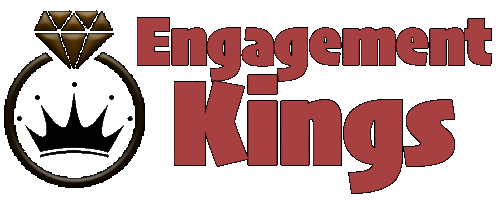Jumping into marriage too soon can spark unforeseen challenges and potential heartbreak. Overwhelming infatuation might blind you to compatibility issues or red flags. It’s essential to communicate openly about values and future goals early on. This helps avoid getting swept up by societal pressures or biological clocks, which often lead to hasty decisions. Rushing into engagement is linked to higher divorce rates and unresolved conflicts. Understanding your partner’s habits takes time—ideally spending two to five years dating. Remember, marriage won’t fix personal insecurities. Consider exploring how you can strengthen your relationship and build a solid foundation.
Signs of Rushing Marriage

One sign you might be rushing into marriage is overwhelming infatuation that can cloud your judgment. When you’re caught up in the excitement and novelty of a new relationship, it’s easy to overlook important factors like compatibility and conflict resolution.
If you’re considering getting married quickly, it’s vital to take a step back and evaluate how well you truly know your partner. Have you’d open communication about your values, goals, and expectations? Without these discussions, you might be ignoring potential red flags.
It’s important to know your partner’s background, including their social circle and family dynamics. Rushing into marriage without this knowledge can lead to feelings of isolation or surprise once the honeymoon phase ends.
Ask yourself if there’s a real reason driving the urgency. Are societal pressures, like age or biological clocks, making you feel like you need to hurry? Or are you seeking validation or trying to fill a void?
Before committing, verify that you’re emotionally ready and your relationship is based on a solid foundation. Open communication is key.
Take the time to know your partner deeply, and verify you’re both on the same page for a lasting union.
Risks of Quick Engagements
The allure of a quick engagement often masks the potential pitfalls lying beneath the surface. At first glance, the whirlwind romance might seem thrilling, but quick engagements can lead to higher divorce rates. Studies suggest that couples who rush into marriage are more likely to face marital dissatisfaction.
It’s easy to overlook compatibility when you’re caught up in the excitement, but understanding your partner’s traits and habits usually requires more than just a few months.
External pressures, like societal expectations, frequently drive individuals into these hasty commitments. This can make you ignore the vital dynamics of a healthy relationship. You might think marriage will solve existing problems, but unresolved issues often resurface, potentially leading to further conflict.
Emotional manipulation can also play a role, with impulsivity and low self-esteem pushing you toward a decision you’re not fully ready for.
Rushing into an engagement might seem like a shortcut to happiness, but it can leave you vulnerable to challenges you didn’t anticipate. Instead of assuming marriage will fill an emotional void, focus on building a solid foundation.
Take the time to address any existing issues, ensuring they don’t follow you into married life.
Ideal Courtship Duration

Patience plays an essential role in determining the ideal courtship duration before marriage. Taking your time in the dating phase allows you to assess compatibility thoroughly.
Research shows that the average relationship length before tying the knot is around two years, with 70% of couples following this timeline. This period gives you a chance to understand each other’s values and future goals, which is vital for a stable marriage.
Consider these key points for an ideal courtship:
- Two to Five Years: Over half of surveyed couples believe this is the best dating period before getting married, providing ample time for compatibility assessment.
- Engagement Length: The average engagement in the U.S. lasts about 15 months. This time lets you plan your future together without rushing into it.
- Early Conversations: Experts suggest discussing future goals and values within the first few months of dating. This guarantees your aspirations align, paving the way for a successful marriage.
- Three-Four Rule: Address four critical questions about your relationship within the first three months. This helps determine if you’re truly ready for a lasting commitment.
Taking these steps guarantees your relationship is built on a solid foundation.
Personal Stories and Regrets
Many people find themselves looking back with regret after rushing into marriage too soon. You might think that getting married will solve all your problems, but personal stories often reveal a different reality.
Many individuals admit they didn’t fully understand their partner’s true nature before the wedding. External pressures, like family expectations or societal norms, can push you into a commitment you’re not ready for, leading to regret and emotional turmoil later on.
Once the initial excitement fades, hidden issues such as infidelity or emotional abuse may surface, problems that were masked by the whirlwind of a rushed marriage. Suddenly, the lack of compatibility becomes glaringly obvious, and unresolved conflicts start to strain the relationship.
It’s not uncommon to hear about people looking back and realizing that they overlooked essential signs that their partner wasn’t the right fit.
Statistics show that quick marriages often lead to divorce, especially those where couples tie the knot within six months. Many find themselves dissatisfied, wishing they’d spent more time understanding their partner before committing.
If you’re considering getting married quickly, remember that understanding and compatibility are fundamental for a lasting marriage. Otherwise, regret might just follow you down the aisle.
Steps to Avoid Rushing

Reflecting on personal stories and regrets can be a powerful motivator for those considering marriage to take a more measured approach. It’s essential to avoid rushing into marriage by focusing on several key strategies.
First, take time to engage in meaningful conversations about values, goals, and expectations with your partner. This guarantees a mutual understanding that lays a solid foundation for your relationship.
Second, assess your emotional readiness. Marriage won’t magically solve personal insecurities or relationship dynamics. Acknowledging these issues beforehand can save you from potential pitfalls.
Third, prioritize experiencing various life milestones together. Going through challenges and conflicts can reveal compatibility and strengthen your bond, making certain you’re truly ready for marriage.
Fourth, seek premarital counseling. This offers a structured environment to explore compatibility and relationship readiness. It encourages open communication and provides insights into possible future challenges.
Above all, remember to focus on your personal timeline rather than societal pressures. Whether it’s age or family expectations, staying true to your own pace guarantees that you’re making decisions based on what’s right for you, not external norms.
Taking these steps can help in building a lasting, happy marriage.
Conclusion
Before you say “I do,” take a step back and guarantee you’re marrying for the right reasons. Rushing into marriage can lead to unforeseen challenges that might not surface until it’s too late. Reflect on your motivations, communicate openly with your partner, and give yourselves time to truly understand each other. By building a strong foundation based on mutual understanding and readiness, you’re more likely to create a lasting and fulfilling partnership. Remember, love isn’t a race.



